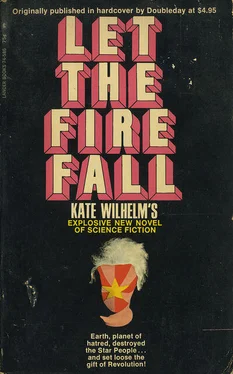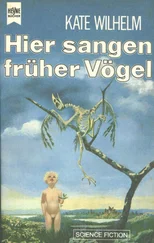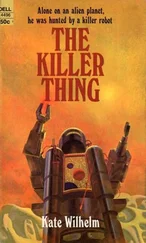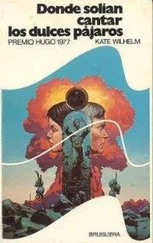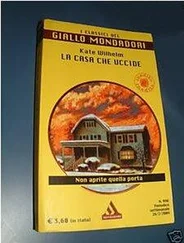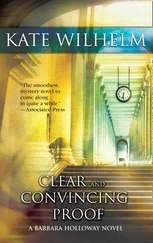Kate Wilhelm - Let the Fire Fall
Здесь есть возможность читать онлайн «Kate Wilhelm - Let the Fire Fall» весь текст электронной книги совершенно бесплатно (целиком полную версию без сокращений). В некоторых случаях можно слушать аудио, скачать через торрент в формате fb2 и присутствует краткое содержание. Город: New York, Год выпуска: 1969, Издательство: Lancer Books, Жанр: Фантастика и фэнтези, на английском языке. Описание произведения, (предисловие) а так же отзывы посетителей доступны на портале библиотеки ЛибКат.
- Название:Let the Fire Fall
- Автор:
- Издательство:Lancer Books
- Жанр:
- Год:1969
- Город:New York
- ISBN:нет данных
- Рейтинг книги:5 / 5. Голосов: 1
-
Избранное:Добавить в избранное
- Отзывы:
-
Ваша оценка:
- 100
- 1
- 2
- 3
- 4
- 5
Let the Fire Fall: краткое содержание, описание и аннотация
Предлагаем к чтению аннотацию, описание, краткое содержание или предисловие (зависит от того, что написал сам автор книги «Let the Fire Fall»). Если вы не нашли необходимую информацию о книге — напишите в комментариях, мы постараемся отыскать её.
The first man to reach the spaceship was Obie Cox. Until then Obie had been known only for the possession of one of the most beautiful male bodies in creation.
After the spaceship, Obie Cox became known throughout the world. Obie was touched by the hand of God, and that hand lay heavy on him. But he knew his duty was to carry the message placed in his hands to the world… the strong message, the truthful message… the message of hate!
Let the Fire Fall — читать онлайн бесплатно полную книгу (весь текст) целиком
Ниже представлен текст книги, разбитый по страницам. Система сохранения места последней прочитанной страницы, позволяет с удобством читать онлайн бесплатно книгу «Let the Fire Fall», без необходимости каждый раз заново искать на чём Вы остановились. Поставьте закладку, и сможете в любой момент перейти на страницу, на которой закончили чтение.
Интервал:
Закладка:
“You _______ _______ _______ brought the _______ creepies here!”
“No! My old man. He wants me, that’s all. Let me start the car.”
They all became silent as the car neared the other side of the fence. The searchlight showed through cracks in the planks, then was gone. “He’s squaring,” the kid said, still trying to get the engine going. “Come here, kid. If you can’t start it, you’re Harry’s baby. He’ll cut off your _______ and stuff it up your _______”
The General was the fastest of the electric cars produced. It would do one hundred miles an hour on straightaways, cruise for five hundred miles without recharging, and was virtually noiseless. Blake couldn’t reach inside the engine and he had to hoist himself up and cling by his arms as he manipulated the wires. The General had half a dozen safety features that were advertised as making it steal-proof. Blake unhooked wires and refastened them quickly. Harold touched him in the ribs with the knife and Blake spoke in asterisks as fluently and forcefully as Sam himself could have done. Harold grinned and moved back a step.
The kid who had been trying to start it was watching Blake with concentration, and the third one was acting now as the lookout. He said, “Pst,” and they all froze. The searchlight was back, on the street, probing driveways now. Harold watched it with narrowed eyes. “No _______ _______ creepies,” he said. “But that makes two cars so far. Who’s after you, cutie pie?”
The car came to life then. There was no noise, only a vibration that they could feel. Harold chuckled and slipped the knife into his jeans. “Okay, kid. You earned a ride. Hop in.”
They rode around until four in the; morning. They wouldn’t let Blake out before then and eventually he fell asleep on the back seat. Harold woke him.
“Where you want to go, kid?”
“Out of the city. I don’t care where.”
“Come on. Let’s get some sleep.” Harold pulled him out of the car, which left again, and he was walked up ten flights of stairs, stumbling over people on the landings and in the halls.
Blake couldn’t see anything inside the room where Harold took him, but he was pushed down on the floor on a thin mat that smelled old and mildewed and he fell asleep there. The next day Harold left Blake in the room for a couple of hours and when he came back he had a bag of hamburgers and milk. “The _______ creepies ain’t after you, but someone is. They’re watching the buses and the trains. What’d you do?”
Blake told the fourth or fifth version of the basic story that he had decided to give in answer to that question. He’ said, “It’s my father. My stepmother talked him into putting me in a _______ fancy school with _______ uniforms and marching every morning and all that _______ I ran away, and now he’s trying to find me and take me back. She’s got money and there’s not much he can do except what she tells him, but he hired those goons and they stick.”
Harold didn’t believe all of it, but enough to accept Blake without further questioning. He had seen the men himself in the bus station, and he knew they were private detectives, and that was enough. The kid had been on the bum long enough to work up some muscle and break his fingernails back to the quick and get them black with dirt and oil. His hands were hard and callused, and he knew how to jump a General. That was enough.
Blake became part of the gang, the Erie Waves. This section of the city had been industrialized fifty years in the past, and industry had since moved out to escape the mountains of filthy, unusable refuse it had created. Instant Rehab had moved in following the exodus and had filled the warehouse shells with walls, floors, bathrooms, kitchens, and had rented them out at low, subsidized rent rates. After ruling the development for ten years or so, Instant Rehab had been abandoned when graft and plain sticky fingers brought in a full-scale investigation. No one had stepped in to fill the vacancy left, and the newly created apartments became something else again. Where a four-room apartment had been specified for a family of no more than four, it now held six, ten, twenty, however many wanted to live there. There were no inspectors. The warehouse where Harold lived had been planned to house twenty families in twenty units. It held close to a thousand people in units that had lost their unity. Rooms became apartments. Bathrooms went with the room occupied by the strongest, or the meanest, or the quickest with a knife or lead pipe. The building smelled of urine, sweat, mold, garbage, beer, booze, weed, excrement. There were no mice; the rats killed them. Harold had taken a room on the top floor and had held it for two years now, ever since his fourteenth birthday when he presented himself with freedom.
Blake lived in the room with him that fall and winter. The worst problem he faced was with the money Sam the barker had given him. He knew he couldn’t leave it in the apartment, nor could he keep it with him. He worried about it for three days, then went to a ten-cent store and bought stationery and a pen and studied the newspapers for another two days, finally picking out an investment firm. He wrote directly to the president in these words: “Dear Sir, This is extremely eccentric of me, but I am an eccentric person. I wish to have you invest the enclosed money, one thousand dollars, $1,000, in the following companies. Five hundred dollars, $500, in common stock of the LCSA, Laser Communications Systems of America; three hundred dollars, $300, in preferred stock of OSMC, Off Shore Mining Corporation; and the remainder, after your fee, in stock of your choosing. Please send a receipt of this transaction to Mr. J. M. Black in care of Heffleman’s News Store, 16890 Huron Avenue.”
So J. M. Black was born, and Blake became his errand boy. He haunted Heffleman’s store until the receipt arrived, with a request to call at the office to fill out necessary papers, tax forms, social security forms, etc., signed sincerely, Robert L. Kaufman. He gave a false social security number, and advised Robert L. Kaufman to take care of the tax for him until further notice. Then he severed the communications by not answering any of the later notes.
Harold liked Blake, was infinitely amused at his vocabulary, awed by his repertoire of swear words, and astounded by his knowledge of cars and motors. He never did believe the story of the father searching for his son, but he didn’t care. Blake was okay, and legit, really on the lam from something. He was the only whitey who’d call Harold a _______ spade and get a grin out of him instead of a blade. He told Blake how to stay out of sight during the school session on weekdays. Told him where kids his age could go and not be picked up for loitering and on suspicion, which places to steer clear of, which men, and women, to avoid like plague, which guys would be good for a pad, or a bite at a minute’s notice. He brought grocery bags of stolen books for him. In return Blake stole a car whenever Harold needed or wanted one. Harold never kept the cars, or resold them, he simply used them. A loan, he would say grinning. Harold was a good friend to have; he could use the knife, and he had had sixteen years’ training in the alleys of Cleveland, knew every creepie three blocks away, could identify every prowl car the day after it took to the streets, and knew exactly when the heat was too high to be out at all. He taught everything he knew to Blake. They were busy months. Harold ran bets for Heffleman, picked up hot credit cards and delivered them, brought an occasional girl home and shoved Blake out, brought the guys around for beer, or stolen whisky, and cards now and then. And there were the rumbles that never really ended. They would ebb and surge, but never die.
And so, time is swift and to detail the various modes of life sampled by Blake Daniels would be tedious. Enough to say he survived them, sometimes quite respectably, more often less so, learning the slums of the land, and the wilderness areas—he discovered that he could live off the land in the summer more comfortably than he could manage in the cities, and he could avoid the endless bloody riots and the ever present possibility of being picked up for questioning. He learned the museums and the libraries. Especially the libraries. He read everything and remembered everything he read. He discovered drama, and he wondered if French drama lost much in translation, so he learned French. He learned Russian and Spanish and Italian, and when he came across Haiku in the original, he started in on Asian languages. When he was fifteen he could pass for eighteen and his identification problems were solved for him. He bought a forged draft card and ID cards, credit cards, and so felt safe unless a thorough investigation should be made. He listed Chillicothe, Ohio, as his hometown because he thought it was a funny name. By sixteen he no longer feared being forced to stay with Obie, but he didn’t want to go through the court battles that he knew Obie could arrange. He planned to return to Matt and Lisa when he was eighteen.
Читать дальшеИнтервал:
Закладка:
Похожие книги на «Let the Fire Fall»
Представляем Вашему вниманию похожие книги на «Let the Fire Fall» списком для выбора. Мы отобрали схожую по названию и смыслу литературу в надежде предоставить читателям больше вариантов отыскать новые, интересные, ещё непрочитанные произведения.
Обсуждение, отзывы о книге «Let the Fire Fall» и просто собственные мнения читателей. Оставьте ваши комментарии, напишите, что Вы думаете о произведении, его смысле или главных героях. Укажите что конкретно понравилось, а что нет, и почему Вы так считаете.
